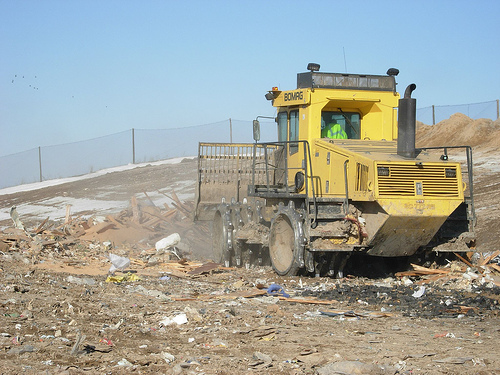
There are different categories of wastes, and you have to know if your facility generates wastes that are considered hazardous or not. If you do have hazardous waste, understanding the regulations governing how you deal with that waste can seem overwhelming. Getting help from a knowledgeable consultant could be your smartest move.
Whether or not you choose to obtain professional help, you can help yourself by practicing good housekeeping to minimize costs associated with handling your hazardous waste. Here are some suggestions for waste management best practices:
- Avoid mixing hazardous waste with non-hazardous waste, which can create an even more hazardous “cocktail” and lead to more expensive disposal.
- Use alternative non-hazardous chemicals where possible. Substitute cleaning solvents with less toxic cleaning agents.
- Clearly label and regularly monitor chemical and waste storage containers, such as drums and tanks. Check for leaks, overfill and spills. It’s better to identify and correct small problems promptly before they become large and costly.
Adopting recycling practices in the work place can also save you money. Some waste chemicals, such as used anti-freeze, can be filtered, re-processed and re-used. Other waste products, such as used oil and oil filters, can be contained and collected for recycling. Recycling can also improve your company’s ethical image with your employees and the outside observer.
Finally, why spend money on waste disposal at all if you can prevent waste generation at the source and reduce your monthly output? Generating fewer wastes also means you’ll have to deal with fewer regulations.
Understanding and adopting waste management best practices can prevent wastes from becoming a liability and a financial money pit for your business.
Photo Credit: Lisa Yarost
